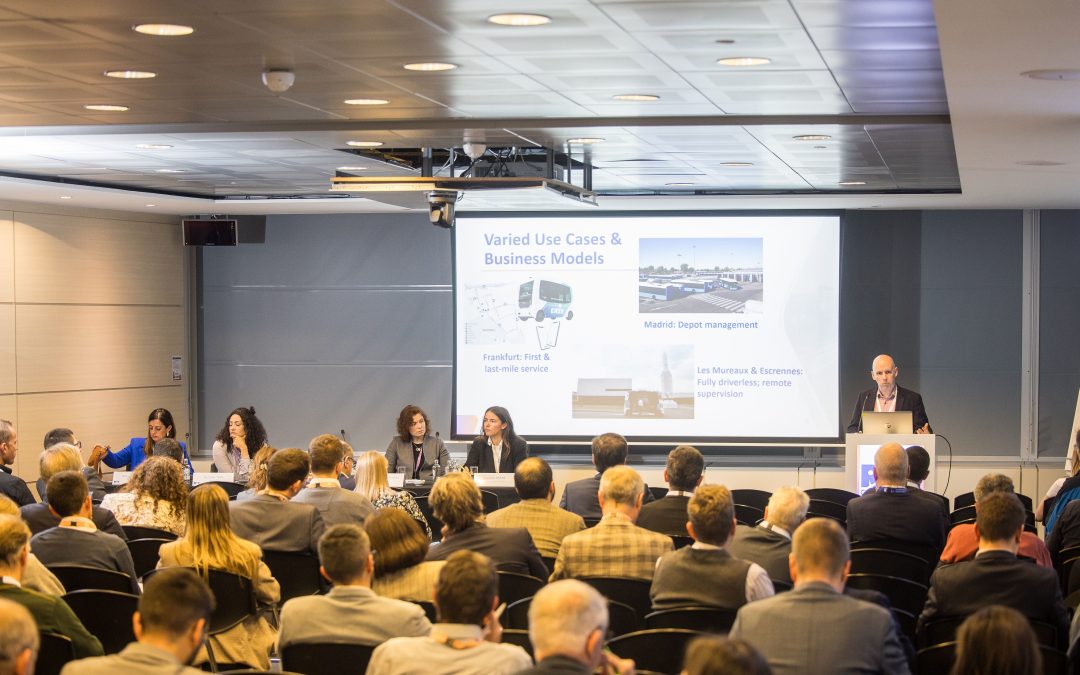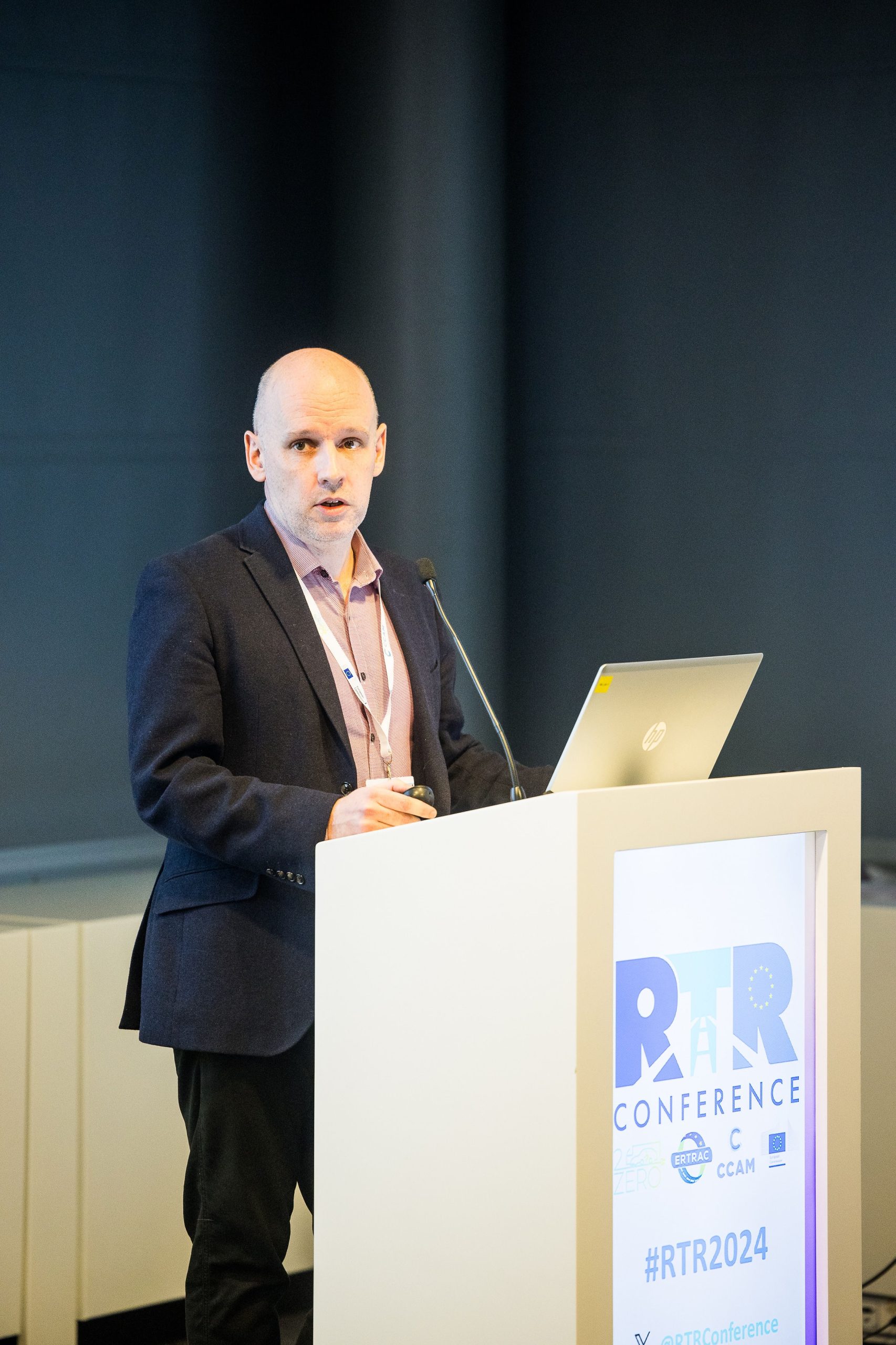
The RTR Conference is a premier event showcasing the latest advancements in road transport research from EU-funded projects. Held annually, it provides a platform for researchers, industry professionals, and policymakers to exchange knowledge, share insights, and shape the future of sustainable and efficient mobility. John McSweeney (UITP), our project’s coordinator, shared SHOW key findings and results alongside the AWARD and Hi-Drive project, during the session “CCAM on the roads”.
The RTR Conference 2024 wrapped up three days of showcasing breakthroughs in road transport research. 76 EU-funded projects explored innovations in green vehicles, city mobility, logistics, safety, and automation. Over 80 speakers led discussions on key topics like sustainability and automated driving, solidifying RTR’s role as a knowledge hub for the industry. The SHOW project, with its 66 partners across 13 countries had a big presence at the event, shedding light on its role in reshaping urban mobility and automation across Europe and beyond, addressing critical challenges and opportunities in the field of urban mobility and automation
 Mr McSweeney introduced the project’s mission to advance the deployment of shared, connected, and electrified automation in urban mobility, primarily within public transport. Since its kick-off, in January 2020, the project has made significant strides in identifying priority use cases for automation, developing new business models, establishing a common system architecture, improving vehicle functionality, and deploying demonstration fleets with connected services and infrastructure.
Mr McSweeney introduced the project’s mission to advance the deployment of shared, connected, and electrified automation in urban mobility, primarily within public transport. Since its kick-off, in January 2020, the project has made significant strides in identifying priority use cases for automation, developing new business models, establishing a common system architecture, improving vehicle functionality, and deploying demonstration fleets with connected services and infrastructure.
SHOW is the most holistic CCAM demonstration in Europe, with several pilots operating in various European cities. These sites are crucial for testing various use cases and business models in real-world conditions, ranging from residential neighbourhoods to complex urban environments.
The project aims to generate practical guidelines and policy recommendations based on the findings and experiences gathered from the pilot sites. These recommendations will feed into the EU roadmap for the future deployment of shared autonomous mobility. During his presentation, John highlighted the project’s replication and collaborative spirit at multiple levels, including follower cities, regional clusters, and stakeholder engagement with international partners. This collaboration also encompasses international partners, including Japan, the US, and China, and provides valuable insights and opportunities for knowledge exchange and comparison of approaches. SHOW seeks to have a broader impact on societal issues such as employment, user acceptance, accessibility, traffic efficiency, energy efficiency, and environmental sustainability. A significant focus is on how shared autonomous mobility can strengthen public transport networks and contribute to reducing the number of cars and kilometres travelled in urban environments.
If you are willing to engage with us, please contact:
- John McSweeney (UITP), project coordinator: john.mcsweeney@uitp.org
- Maria Gmeou (CERTH), technical coordinator: mgemou@certh.gr